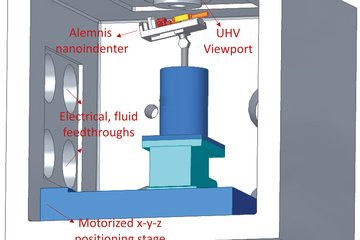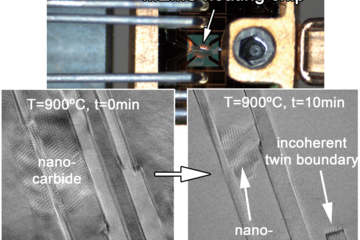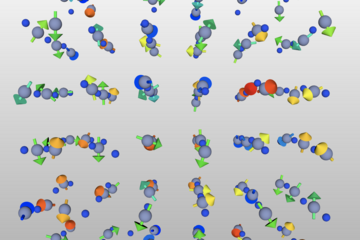All genres
101.
Talk
Complex rheology of a simple model glass: Shear thinning, dynamic versus static yielding and flow heterogeneity. Institut für theoretische Physik, University of Düsseldorf, Germany (2005)
102.
Talk
Yielding dynamics of a model amorphous solid. Seminar talk at Institut für Physik, Johannes Gutenberg-Universität, Mainz, Germany (2005)
103.
Talk
Non linear rheology and dynamic yielding: A molecular dynamics study. SIMU 2004 conference, Bridging the scales, Genova, Italy (2004)
104.
Talk
Stress fluctuations, static yield stress and shear banding in a flowing Lennard-Jones glass. SPIE conference on Fluctuation and Noise in Materials, Maspalomas, Gran Canaria, Spain (2004)
105.
Talk
An Introduction to Molecular Dynamics Simulations. Seminar at MPI für Eisenforschung GmbH, Düsseldorf, Germany (2004)
106.
Talk
Yielding dynamics of a model amorphous solid. Seminar talk at Institut für Physik, Universität Konstanz, Konstanz, Germany (2004)
107.
Talk
The static yield stress and flow heterogeneity in a model glass: A molecular dynamics study. International workshop on dynamics in viscous liquids, München, Germany (2004)
108.
Talk
Etude par dynamique moléculaire de l’écoulement dans les systèmes amorphes. Laboratoire de Physique de la Matière Condensée, Université Claude Bernard Lyon 1, Lyon, France (2004)
109.
Talk
Yield stress and shear banding in a flowing Lennard-Jones glass: A molecular dynamics study. Seminar talk at Laboratoire de Physico-Chimie Théorique, ESPCI, Paris, France (2003)
110.
Talk
Shear localization and non-linear rheology in a binary Lennard-Jones glass. Meeting of GDR “Pâtes et Poudres”, Fréjus, France (2003)
111.
Talk
Rhéologie non-linéaire d’un modèle simple: La bande de cisaillement et la dynamique locale. Deuxième Journée de Modélisation Moléculaire des Polymères et des Matériaux Amorphes, Université Paris Sud, Orsay, France (2003)
112.
Talk
Confinement effects on the slow dynamics of a supercooled polymer melt: Rouse modes and the incoherent scattering function. 2nd International Workshop on Dynamics in Confinement, Grenoble, France (2003)
113.
Talk
Résultats de simulations de dynamique moléculaire sur la dynamique vitreuse d’un système de polymères. Seminar at Laboratoire de Chimie-Physique, Université Paris Sud, Orsay, France (2001)
114.
Talk
Effects of the confinement on the glass transition in thin polymer films. 28th International Conference on Dynamical Properties of Solids (DYPROSO XXVIII), Kerkrade, The Netherlands (2001)
115.
Talk
Glassy Dynamics in Thin Polymer Films: Recent MD Results. 4-th International Discussion Meeting on Relaxations in Complex Systems, Crete, Greece (2001)
116.
Talk
MD results on the slow dynamics in thin polymer films. The congress of the German Physical Society (DPG), Hambourg, Germany (2001)
117.
Talk
Transition vitreuse dans les couches minces de polymères. Seminar talk at Institut Charles Sadron, Strasbourg, France (2001)
118.
Talk
Molecular Dynamics of Supercooled Polymer Films. International Workshop on Dynamics in Confinement, Grenoble, France (2000)
119.
Talk
Glassübergang in Polymerschmelzen. The congress of the German Physical Society (DPG), Münster, Germany (1999)
120.
Talk
Measurements of moments for diffracted laser beams: Comparison with theory. 4-th International Conference on Laser Beam and Optics Characterization (LBOC), München, Germany (1997)











